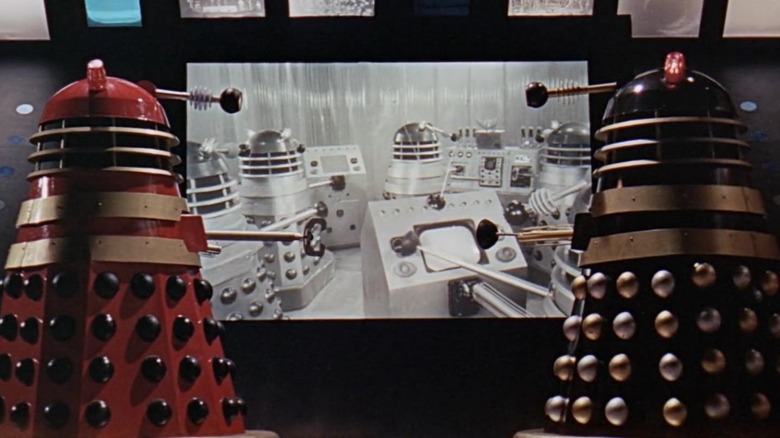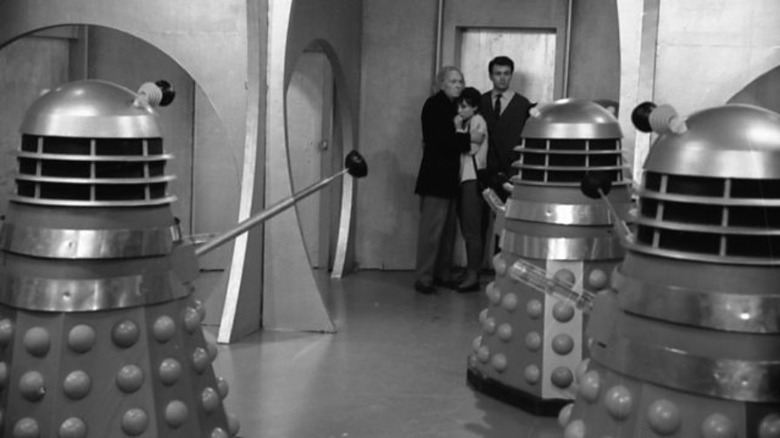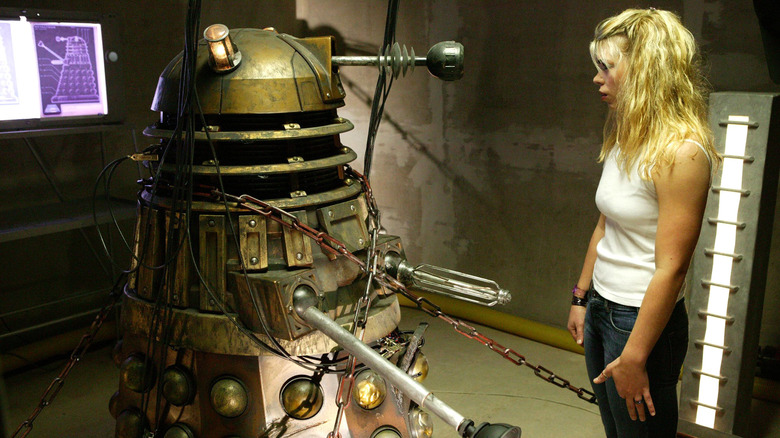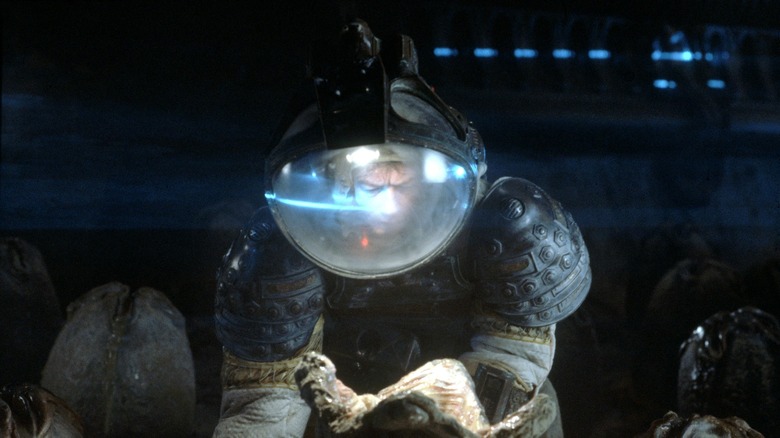Ridley Scott Was Supposed To Design Doctor Who's Most Infamous Aliens
"Doctor Who" is one of the most enduring and legendary names in all of sci-fi. Few franchises of any kind can say that they've had the staying power that this show has had across multiple generations and multiple decades now. The tale of the time-traveling Doctor in his many forms and his many various companions does, itself, manage to transcend time. But any good hero needs an arch-nemesis and, for the Doctor, that foe comes in the form of the Daleks. These destructive robot beings have been a mainstay of the series dating back to its earliest incarnations in the '60s.
As it just so happens, a legend of the genre very nearly had a big influence on "Doctor Who." Ridley Scott, the director of classics such as "Alien" and "Blade Runner," was originally tasked to help craft the Daleks and bring them to life on screen. So, what happened? Why didn't Scott end up seeing this job through, and why did someone else get to put their stamp on sci-fi history by taking on that role?
Ridley Scott left Doctor Who to train as a director
The Ridley Scott that we know didn't truly get his start as a director of features until the late '70s, and he was in his 40s by the time his first movie came out. He had been working in the business learning and honing his craft before then. One of his jobs, as it turns out, was working on "Doctor Who" as a set designer for the BBC. Scott was tasked with working on the classic episode of the show titled "The Daleks," aka "The Mutants and The Dead Planet." According to the BBC, Scott actually departed the project before production began, leaving the network to go work for another company entirely. Per the BBC:
The original set designer allocated to this story was Ridley Scott. However, before production on The Daleks began, Scott left the BBC to go to Granada Television in Manchester where he trained as a director.
So it went that Scott headed off to Granada Television to hone his craft as a director. But that left a big hole that needed to be filled on "Doctor Who," with the show just getting underway. This was to be the second episode of the show following "An Unearthly Child" and someone was going to need to step in to pick up where Scott had left off. That person was Raymond Cusick.
Raymond Cusick took on the task
With Scott gone, it was up to Raymond Cusick to take on the task of bringing the Daleks to life. Little did he know that he was about to craft one of the most enduring villains in the history of television, but that's the way it goes. As set designer, Cusick had to take what writer Terry Nation had described about the Daleks on the page and make it a reality on a shoestring budget. For as much as those original "Doctor Who" episodes have become classics in their own right, nobody would be accused of calling them overly expensive.
Even working within these constraints, replacing someone who left late in the game and working with little money, Cusick got the job done and the rest was history. The Daleks are still a big part of the franchise to this day and, beyond the show, they have been printed on tons of merchandise and featured in expanded universe stories in books and comics. There was even an attempt to bring "Dalekmania," as the craze over the mutant aliens was known in the U.K., over to the States with the 1965 Peter Cushing-led film "Dr. Who and the Daleks" and its 1966 sequel. Unfortunately, the BBC also notes that Cusick didn't exactly get the chance to share in the wealth that he, in part, helped generate:
As a BBC staff member, Cusick did not share in the financial rewards and received only a small bonus in recognition of his contribution.
It is not stated how much that small bonus was but it surely pales in comparison to what has been made on the backs of this creation.
Sci-fi was better off for it
While it is no doubt interesting to contemplate what might have been had Scott seen the job through, sci-fi history may well have been better off with the switch. Cusick did a damn fine job in place of Scott and the enduring legacy of "Doctor Who" speaks to that. But because Scott left to pursue becoming a director, the genre was given a whole lot more to love. In particular, Scott's feature directorial debut "Alien" is still considered to be one of the greatest films of any kind ever made. Not to mention that the franchise is still going in the modern age, with a TV show and a new movie in the works.
Beyond that, Scott has also contributed gigantic works to the genre with "Blade Runner" and, more recently, his show "Raised by Wolves." Not to mention the numerous filmmakers and other works that these films have gone on to inspire. Imagine what might have happened if Scott stuck around to craft the Daleks instead? A question perhaps only one possessing a TARDIS and a sonic screwdriver would be capable of answering.



